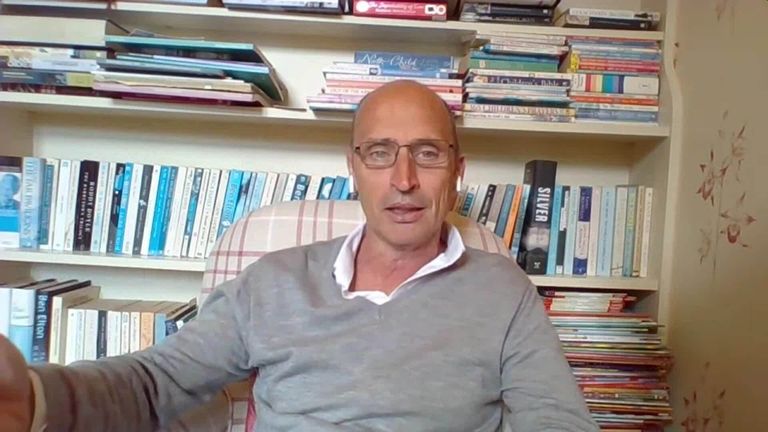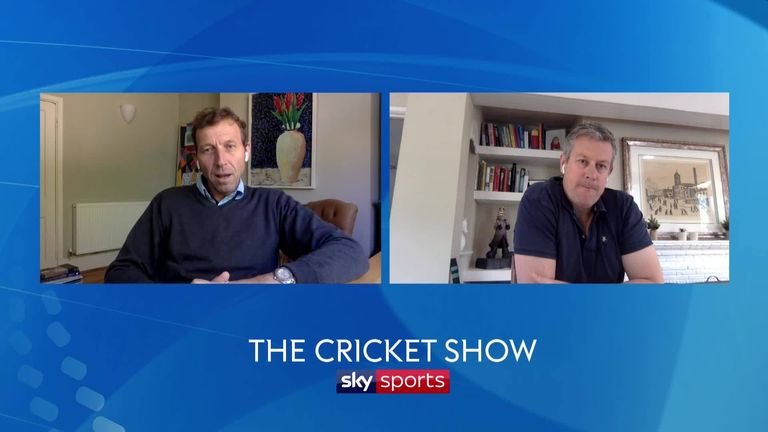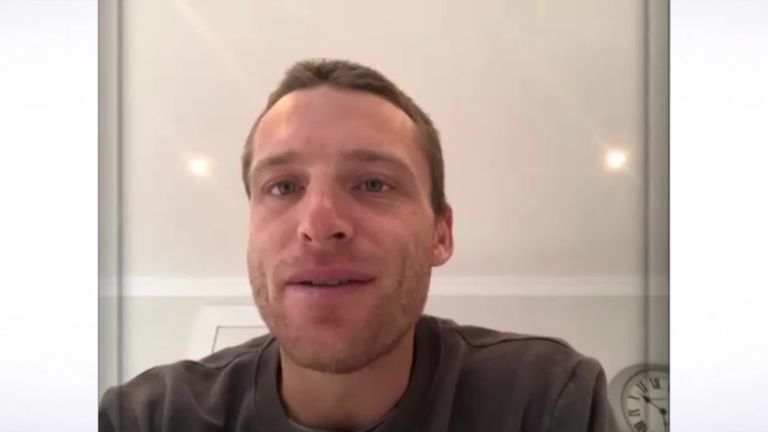England’s plan to operate with two different squads for the majority of the summer once cricket returns may create new opportunities for young players, says Mike Atherton.
Ashley Giles, managing director of England men’s cricket, reiterated that flexibility in selection will be key should international fixtures take place from July onwards – subject to government advice in response to the coronavirus pandemic – rather than keep players in isolation from their families.
Giles spoke to The Cricket Show on the day the England and Wales Cricket Board confirmed that centrally-contracted players would begin returning to individual training programmes at venues across the country from Monday.
Up to 30 players would begin tailored skills-based programmes with a red-ball focus, before the ECB introduced similar schedules for white-ball players “in two or three weeks’ time”.
Former England captain and Sky Sports Cricket pundit Atherton said continuity of selection in proposed Test series against West Indies and Pakistan was unlikely.
“England are going to need those 30 names probably because when you listen to Gilo, he’s talking about requiring flexibility for players to go and see family,” said Atherton.
“So it’s unlikely that they are going to pick the same team for Test match after Test match. So it may give some opportunities for some young players.
“Joe Root’s wife, I think, is expecting on the very first day of that scheduled first Test against West Indies on July 8, so maybe Ben Stokes will get a chance at the captaincy.
“With 30 names you are looking at the bunch of England centrally-contracted players, a dozen or so; then you’ve got people like Saqib Mahmood, Craig Overton, Olly Stone who are on those pace bowling development contracts.
“You’ve got young players like Ollie Pope, Zak Crawley, Dom Sibley who are not contracted. But in someone like Crawley’s case, he’s someone who will have to be brought off furlough at Kent – and the ECB will be paying for that – as well as Ollie Pope and Dom Sibley at Surrey.
“So you’ll probably have a few players with the Lions team in Australia this winter – somebody like Dan Lawrence, maybe, who did pretty well down there.
“So there might be a few fresher faces that people haven’t seen in and around the England team in the last year or two – and given the schedule, which is going to be very tight, and the flexibility required for the selectors you may see one or two opportunities thrown their way.”
Giles stressed that the physical and mental health of all players remains the ECB’s top priority and that players would have the option to opt out of individual training at this stage should they wish, and undergo psychological screening.
“It is very clear that this is individual skills-based training so in many ways we should be able to get control of the environment right, so it’s safer to go back to practice than it is to go to the supermarket,” said Giles.
Sky Sports Cricket pundit Nasser Hussain said the ECB’s duty of care extends as much to those players who aren’t involved in the sessions as those who are.
“I was reading social media and quite a few people have picked up on the fact that Ashley Giles said it will be less dangerous than going to the supermarket,” said Hussain.
“But one good thing about having an ex-cricketer at the top of the tree is that Ashley knows the mental side of international cricket and I’m pleased that he ruled out having international cricketers stuck in a hotel room for nine to 10 weeks, with form going up and down and you not being able to see your family.
“Everyone, whatever world you are in, has to work out the balance between getting back to work and risking life. But I would say the most important thing is not risking your life but trying to do something appropriate to try and get yourself back to work.
“So the mental side and the mental duty of care from the ECB to its players has to be paramount; just under the safety of life comes mental well-being.
Source: Read Full Article




